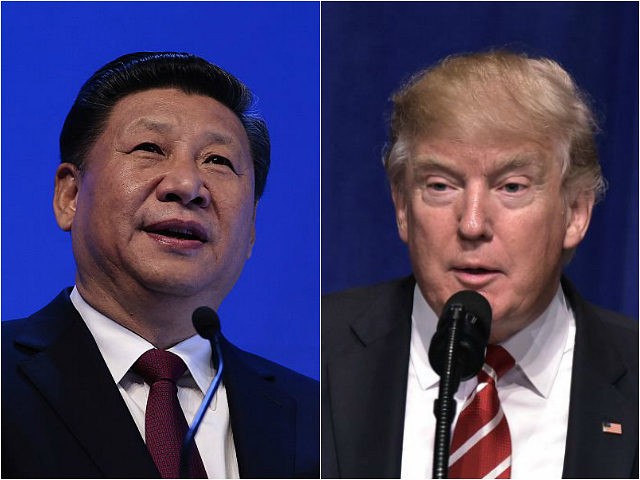President Trump will clearly name China as a “strategic competitor” in the forthcoming National Security Strategy to be unveiled Monday, according to senior administration officials who previewed the document in a call with reporters.
“The strategy refers to China as a strategic competitor. So I think China is seen as a strategic competitor because China competes effectively across the political, economic, military, and informational domains in ways probably not duplicated by our other competitors,” one of the officials said on the conference call on Sunday.
Trump will unveil the strategy himself, something not all presidents have chosen to do. The NSS is a document required by Congress that outlines an administration’s foreign policy goals.
The language on China is a departure from the Obama administration’s last NSS in 2015, which mentioned competition with China but stopped short of calling China a competitor. “The United States welcomes the rise of a stable, peaceful, and prosperous China,” it said. The administration’s NSS in 2010 did not mention competition with China at all.
Trump made combating unfair trade practices with China a core tenet of his campaign. The officials said the NSS drew upon Trump’s campaign promises, and he had a personal role in shaping it.
Officials on Sunday discussed specific areas where action needed to be taken.
The U.S. “innovation base is under threat by the serious intellectual property theft that’s going on by the Chinese and other actors as well,” an official said. “We need to protect data in different ways.”
“We need to ensure that the legislation we have, like CFIUS [Committee on Foreign Investment in the United States], is up to date and reflects the kinds of strategic investments that are taking place by other countries,” the official added.
“And again, this is not only a U.S. problem; this is a problem in Europe, as well. So we paint a picture, and then we do have specific ideas — legislative, also — thinking about how to protect our R&D [research and development] at the national labs, and then universities more effectively as well.”
At the same, the NSS does not rule out cooperation with China where it benefits the U.S., particularly with North Korea, also known as the Democratic People’s Republic of Korea (DPRK).
“We’re working with China. We do not rule out cooperation in any way, and talks throughout the document about areas of mutual cooperation. We know that we need China to work with them, and we’ll continue to work with them on the DPRK problem.
“So it’s not mutually exclusive. We’re working together to cooperate, at the same time acknowledging that competition exists as well,” an official said.

COMMENTS
Please let us know if you're having issues with commenting.